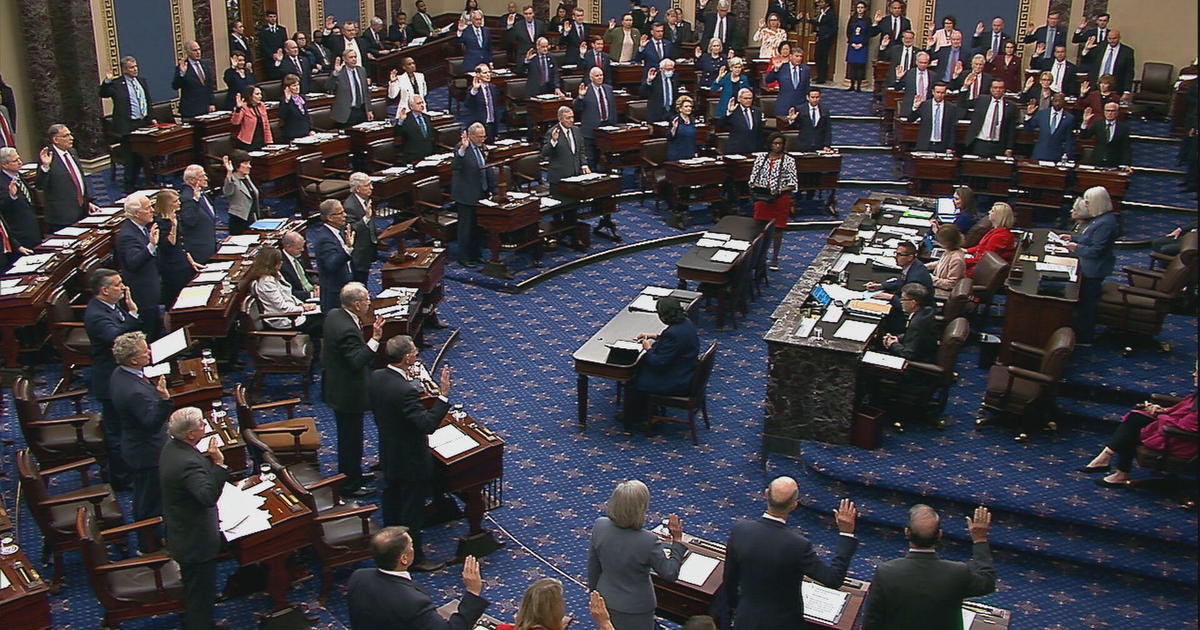Senate Intel Committee launches effort to thwart election threats
With the 2018 primary season already underway, leaders of the Senate Intelligence Committee are launching an effort to protect U.S. elections from a repeat episode of foreign interference, in light of Russian attempts to interfere with the 2016 presidential election. Senate Intelligence Committee Chairman Richard Burr, R-N.C., and Virginia's Sen. Mark Warner, the top Democrat on the panel, outlined some of the committee's recommendations for improving the nation's election infrastructure at a news conference Tuesday.
"It is clear the Russian government was looking for the vulnerabilities in our election system," said Burr, noting Russia attempted to penetrate 21 states and penetrated at least one voter database. "... Russia was trying to undermine the confidence of our election system."
The bipartisan news conference stood in stark contrast to President Trump's posture towards Russia. Only moments earlier, Mr. Trump said he congratulated Russian President Vladimir Putin on his reelection win, despite widespread accusations of ballot stuffing. No one on the committee ventured to comment on Mr. Trump's congratulatory call. Both Republicans and Democrats on the Senate Intelligence Committee were firm in their belief that Russian undoubtedly tried to unsettle U.S. election infrastructure in 2016.
"The Russians were relentless in their attempts to meddle," Sen. Susan Collins, R-Maine, told reporters.
The committee's draft report recommended reinforcing states' authority in elections, following through with punishments for other nations that attempt to interfere, place a higher priority on cybersecurity at the intelligence agencies, build stronger voter databases, make sure future systems have a voter-verified paper trail, and help states offset the costs of strengthening their election systems. There was a strong emphasis on returning to a paper ballot-based system. As Sen. Kamala Harris, D-Calif., put it, Russians can't hack a piece of paper.
On Wednesday, the committee will hold a hearing examining attempted hacks on state elections systems in 2016 and the federal and state response to those efforts.
The committee has prepared a larger report on the issue, one of what could be several reports to come out of the committee's investigation into Russian meddling in the 2016 election. Burr and Warner have said this report is the most urgent because of the threat that it could happen again in 2018. It's unclear when the full report will be released, but it is expected to include recommendations for elections officials around the country and also proposals for legislation to help ward off the hacking.
Overall, experts say far too little has been done to shore up vulnerabilities in 10,000 U.S. voting jurisdictions that mostly run on obsolete and imperfectly secured technology. Russian agents targeted election systems in 21 states ahead of the 2016 general election, the Homeland Security Department has said, and separately launched a social media blitz aimed at inflaming social tensions and sowing confusion. Top U.S. intelligence officials have said they've seen indications Russian agents are preparing a new round of election subterfuge this year.
There's no evidence that any hack in the November 2016 election affected election results, but the attempts scared state election officials who sought answers about how their systems had been potentially compromised. DHS took nearly a year to inform the affected states of hacking attempts, blaming it in part on a lack of security clearances. Lawmakers in both parties have pressed the department on why it took so long.
Warner has said he thinks the process to prevent such hacking needs to be more robust, especially since President Trump has not addressed the matter as an urgent problem.
"We've got bipartisan agreement we have to do something on this," Warner said earlier this year.
Last month, special counsel Robert Mueller indicted 13 Russians for alleged meddling by using fake identities and fake social media accounts to promote discord and promote some candidates over others.
Mr. Trump has offered various opinions on the topic of Russian election. In the past, he has insisted that Russian President Vladimir Putin says he didn't do it, and blamed former President Barack Obama for not doing more to intervene in any meddling.



